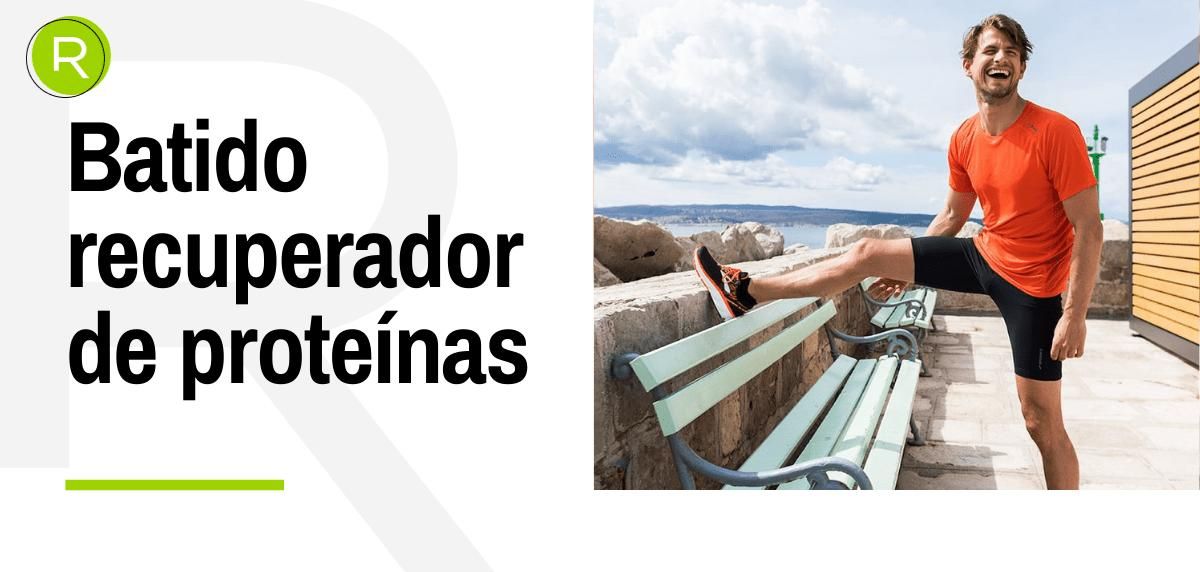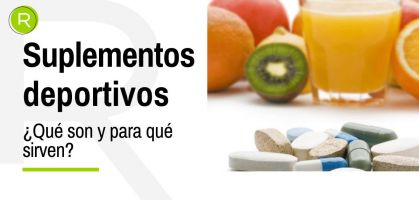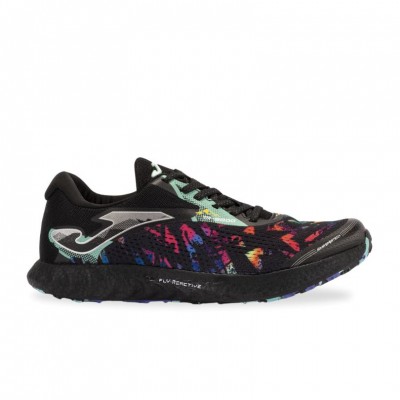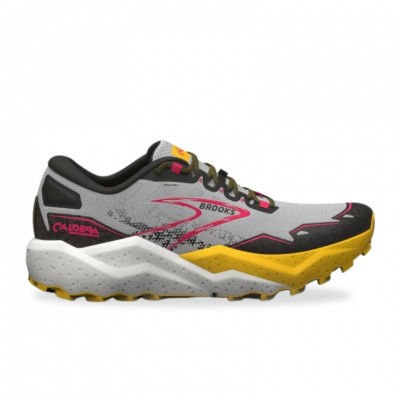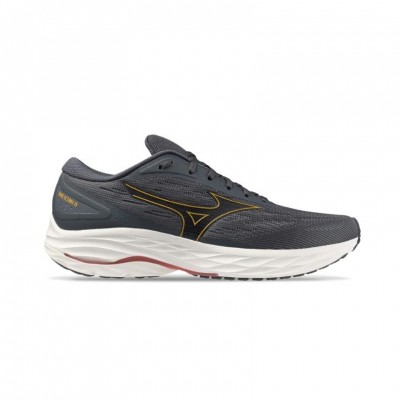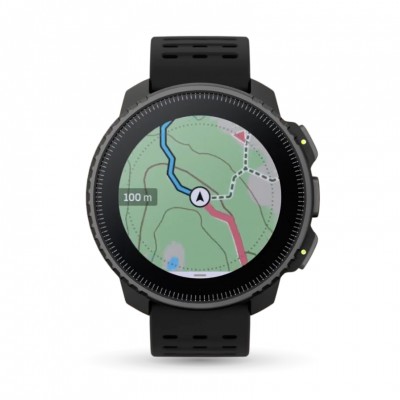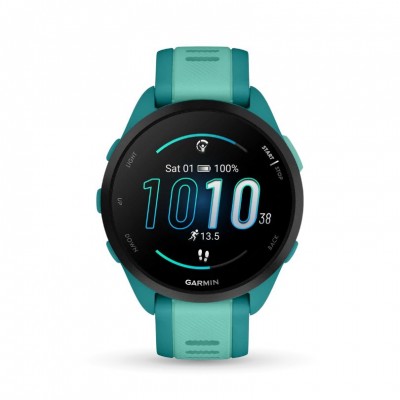Before giving you the recipe for you to make and drink that protein recovery shake after running, it is necessary to emphasize the vital need that all people must cover this amino acid, but in the case of runners, these needs are greater, compared to a more sedentary person, for example. So, it is more than obvious, but it is worth remembering: Sport and nutrition go hand in hand!
That said, at Runnea we put the spotlight on this well-matched marriage, but focusing on the leading role played by proteins in our food base with the idea of recovering, progressing and performing better as athletes. "When the sports practice is longer than 1 hour, or more than 1 workout a day is planned, it is important to make sure to cover the protein needs, since during this process of physical activity an increased oxidation of branched chain amino acids is generated for use as fuel, which can affect body composition, the recovery phase, and even the athletic performance of the runner himself/herself", indicates our Runnea Academy head nutritionist, Sandra Gervilla(@s.gervilla.runneanutricion on Instagram).
Yes, and is that whenever we talk about running and nutrition, carbohydrates acquire a stellar role, especially if we refer to long-distance and long-distance athletes.The carbohydrate load to replenish energy stores can not miss, and it is undoubtedly necessary and mandatory, but one thing does not have to exclude the other, and proteins also need to give them the attention they deserve.
What are the benefits of protein in endurance runners?
If we stop to think about our own runner profile, and try to delve into what specific moment our margin of improvement occurs, we will realize that this does not occur when we are in full training, but the key point occurs later, in the recovery phase. At this exact moment, the muscles start this rebuilding process, and become stronger and faster. Here, protein becomes that essential nutrient that allows us to recover better, and helps us to rebuild our muscles.
What foods help us to improve our running performance?
It should also be made clear that the perfect combination of nutrition and sports performance is closely linked to the needs and objectives of the runner in question. Thus, in general, long-distance runners need to answer two essential questions:
How much protein do I need as a long-distance athlete?
"In endurance athletes, protein needs are estimated at 1.2.4g/kg/day, being those disciplines of longer duration and intensity (where there will be a greater muscle protein degradation) the ones with the highest requirements; although some studies reflected higher needs for this type of athlete, even reaching 1.6-1.8g/kg/day", says Gervilla, a graduate in Human Nutrition and Dietetics.
Likewise, Gervilla also points to the position of the Academy of Nutrition and Dietetics in this regard, noting that "all athletes - strength and endurance - have the same range between 12, and advocating forgetting the static objectives and adjusting them according to the training within a periodized nutritional program".
Therefore, protein can be programmed in different intakes, preferably between 3 times a day. However, it is no less important to specify that these protein needs "can be affected by different circumstances, such as a period of energy restriction, where they can be around 17, or in case of injury, where they can even exceed 2g/kg/day".

When and at what time is it best to take protein?
There is research that shows that protein intake before and during exercise does not have the same muscle recovery effect as that taken after exercise. However, what has been demonstrated is that "the combination of protein and carbohydrates generates benefits with respect to glycogen replenishment and therefore to the recovery of the athlete, and the co-ingestion of these before and during intermittent resistance exercise has been shown to be able to stimulate muscle protein synthesis and also extend the window of metabolic adaptation," explains Sandra Gervilla.
Therefore, everything suggests that a "protein intake within 2 hours after the physical activity to be performed can be effective in optimizing muscle protein synthesis (02.4g/kg/h), without exceeding 40g, except in exceptional cases, since no benefits have been observed", emphasizes Gervilla, Master in Physical Activity and Health.

Protein recovery shake recipe with banana, blueberries, oatmeal and coconut water
It's time to get down to work, and get into the kitchen. So from Runnea, and of course under the supervision of our nutritionist and dietitian, Sandra Gervilla, we proceed to give you the formula to make that homemade protein recovery shake, and that will have good to take after your training session.
Ingredients
- 75g blueberries - 48kcal - 10,88g Carbohydrates (CH) - 0,56g769.
- 100g banana - 99kcal - 22,84g CH - 1,09g769.
- 28g oatmeal 102,9kcal - 16,10g CH - 3,78g769.
- 250 ml coconut water 47,5kcal - 9,28g CH - 1,8g769.
- 18g hydrolysed whey protein MY PROTEIN - 67,79kcal - 0,59g CH - 14,4g769.
- Total: 365,19kcal - 59,69g CH - 21,63 protein > Ratio CH/prot 3:1
As you can see, this recovery shake combines protein and carbohydrates to cover that need that every endurance runner, or that profile of athlete who trains at high intensities, requires to recover better, and therefore improve their athletic performance.
In addition, an important detail that you should not forget: Take it during the first 4 hours after exercise to be more effective and have the effect you are looking for!
With all this, the message of our Runnea nutritionist should be clear, considering that "although the protein needs vary depending on the activity -is notthe same an ultra trail runner than a half marathon runner or a 5k - all athletes should make sure to cover their protein needs, as this condition will be essential to prevent muscle degradation and ensure post-exercise recovery," points out Sandra Gervilla.
You have started to take note, haven't you, try it and let us know the result!
Read more news about: Nutrition
